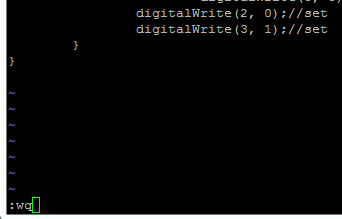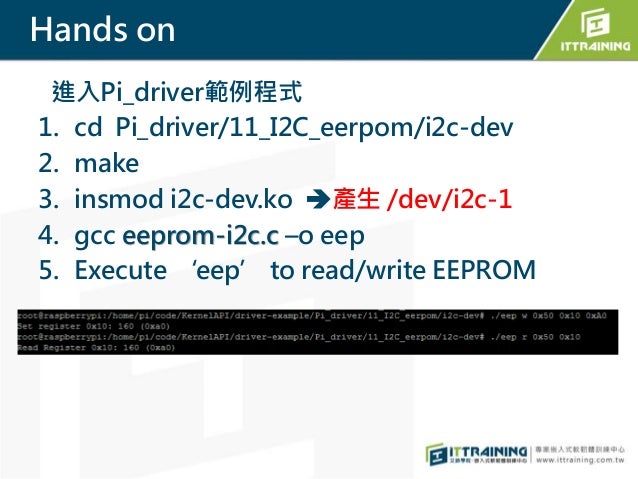I2c Dev.h
Posted : admin On 07.09.2019
I2cdevlib - I2C device library collection for AVR/Arduino or other C++-based MCUs.
I'm trying to read/write to a FM24CL64-GTR FRAM chip that is connected over a I2C bus on address 0b 1010 011. When I'm trying to write 3 bytes (data address 2 bytes, + data one byte), I get a kernel message ( 00 i2c-adapter i2c-0: sendbytes: NAK bailout.), as well as the write returns!= 3. See code below: #include #include #include #include int file; char filename20; int addr = 0x53; // 0b1010011; /. The I2C address./ uint16t dataAddr = 0x1234; uint8t val = 0x5c; uint8t buf3; sprintf(filename,'/dev/i2c-%d',0); if ((file = open(filename,ORDWR)) 8; buf1 = dataAddr & 0xff; buf2 = val; if (write(file, buf, 3)!= 3) exit(3). However when I write 2 bytes, then write another byte, I get no kernel error, but when trying to read from the FRAM, I always get back 0.
Recover My Files v5.2.1.1964 License Key is a best tool. In addition, it a world best software. Therefor, it is a superb software. So, It’s deleted files. Key recover my files v5.2.1. Recover My Files V5.2.1 License Key is the stunning tool that helps you to recover various lost documents from Allocated, Missing, Deleted. Recover My Files V5.2.1 License Key Crack Download 2017 is very useful and very easy to use.Recover My Files 5.1 0 License Key. Recover My Files Crack recovers deleted files emptied from the Recycle Bin, files lost due to the files removed by a virus, Trojan infection.
Here is the code to read from the FRAM: uint8t val; if ((file = open(filename,ORDWR)) struct i2crdwrioctldata workqueue; struct i2cmsg msg2; uint8t ret; workqueue.nmsgs = 2; workqueue.msgs = msg; workqueue.msgs0.addr = addr; workqueue.msgs0.len = 2; workqueue.msgs0.flags = 0; workqueue.msgs0.buf = &dataAddr; workqueue.msgs1.addr = addr; workqueue.msgs1.len = 1; workqueue.msgs1.flags = I2CMRD; workqueue.msgs1.buf = &ret; if (ioctl(file,I2CRDWR,&workqueue). I do not have experience with that particular device, but in our experience many I2C devices have 'quirks' that require a work-around, typically above the driver level. We use linux (CELinux) and an I2C device driver with Linux as well. But our application code also has a non-trivial I2C module that contains all the work-around intelligence for dealing with all the various devices we have experience with. Also, when dealing with I2C issues, I often find that I need to re-acquaint myself with the source spec: as well as the usage of a decent oscilloscope. Good luck, Above link is dead, here are some other links: and of course wikipedia. Note that the method using the struct i2crdwrioctldata and the struct i2cmsg (that is, the last code part you've given) is more efficient than the other ones, since with that method you execute the repeated start feature of I2c.
I2cdev.h No Such File Or Directory
This means you avoid a STA-WRITE-STO - STA-READ.-STO transition, because your communication will become STA-WRITE-RS-READ.STO ( RS = repeated start). So, saves you a redundant STO-STA transient. Not that it differs a lot in time, but if it's not needed, why losing on it. Just my 2 ct.
Attention, Internet Explorer User Announcement: Jive has discontinued support for Internet Explorer 7 and below. In order to provide the best platform for continued innovation, Jive no longer supports Internet Explorer 7. Jive will not function with this version of Internet Explorer.

Please consider upgrading to a more recent version of Internet Explorer, or trying another browser such as Firefox, Safari, or Google Chrome. (Please remember to honor your company's IT policies before installing new software!).